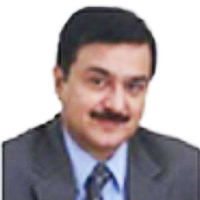Reliability and Diagnostic Performance of Transient Hepatic Elastography in Chronic Hepatitis C during the Training Phase
Published on: 2nd August, 2024
Chronic infection with the hepatitis C virus (HCV) is estimated to affect 58 million people worldwide and around 700,000 individuals in Brazil. Various non-invasive markers of hepatic fibrosis have been proposed, such as transient hepatic elastography (THE) using FibroScan®. However, the reliability of the performance, by operators in the training phase is undetermined, which hinders its applicability in clinical practice. Objectives: The present study aimed to evaluate the impact of training an inexperienced operator to perform the examinations using FibroScan® in patients with chronic hepatitis C. Specifically, the frequency of unreliable results throughout the training was assessed. Methods: This is a cross-sectional study with retrospective data collection including compensated chronic hepatitis C patients who underwent the examinations using FibroScan® between March 2014 and December 2016, performed by two researchers. Included patients were divided into two groups based on the operator's experience in the examination: the Experienced Examiner (EE) group and the Examiner in Training (ET) group, with the latter divided into two phases: phase 1, consisting of the first 100 examinations, and phase 2, comprising subsequent examinations. For the reliability analysis, parameters such as success rate (SR), interquartile range (IQR) to median (Md) ratio (IQR/Md), and reliability criteria of Castéra, et al. and Boursier, et al. were used. Results: Between March 2014 and December 2016, 771 adult HCV-infected individuals were evaluated and divided into EE group (n = 161), ET phase 1 (n = 100), and ET phase 2 (n = 158), showing similar demographic, clinical, and laboratory characteristics. SR and IQR/Md ratios were similar among EE, ET phase 1, and ET phase 2 groups. The proportion of reliable results was comparable in all three groups, using Castéra, et al. reliability criteria (92.5%, 92.0%, and 97.5%, respectively) and Boursier, et al. criteria (96.9%, 95.0%, and 98.1%, respectively). Conclusion: A short training period (up to 100 examinations) seems to be sufficient for them to have good clinical applicability in the hands of an operator with initial experience in the method
Air Quality Dynamics in Sichuan Province: Sentinel-5P Data Insights (2019-2023)
Published on: 2nd August, 2024
This study assesses air pollution in Sichuan Province, China, from January 2019 to December 2023 using Copernicus Sentinel-5P satellite data. The analysis reveals distinct seasonal variations in levels of Carbon Monoxide (CO), Nitrogen Dioxide (NO₂), Sulfur Dioxide (SO₂), and Ozone (O₃), with urban areas experiencing higher concentrations due to industrial and vehicular emissions. CO and O₃ frequently exceeded WHO guidelines, particularly in winter and summer, indicating significant health risks. While most pollutant levels remained within safety limits, the findings highlight the importance of continuous monitoring and targeted mitigation strategies to improve air quality and safeguard public health, especially in urban environments.
Evaluating the Pros and Cons of Evening and Weekend Outpatient Medical Imaging: Implications for Patients and Radiology Professionals
Published on: 8th August, 2024
Evening and weekend imaging services at outpatient radiology centers offer extended access to diagnostic imaging, potentially increasing patient satisfaction and accessibility, especially for underserved populations. This review explores the benefits and challenges associated with these after-hours operations, focusing on health equity, patient satisfaction, economic considerations, energy and cost savings, and the impact on healthcare professionals. Findings indicate that while after-hours operations can enhance patient satisfaction and access, they also pose challenges such as increased operational costs and staff fatigue. Strategies for improvement include optimizing shift schedules, leveraging technology for better scheduling and communication, and enhancing patient-centered care. Collaborative efforts among imaging centers can further improve service delivery and efficiency.
Intelligent Design of Ecological Furniture in Risk Areas based on Artificial Simulation
Published on: 5th August, 2024
The study is based on the characterization of different AI models applied in the public furniture design analyzing the conditions of risk, materiality, and integration of variables in two AI generative modeling algorithms. As risky since they contain flood-prone areas, low vegetation coverage, and underdevelopment of infrastructure; therefore, these characterizations are tested through artificial simulation. The experimental method is applied through laboratory tests of various material components and their structuring in 3D simulators to check their resistance and risk scenarios. The case study of one of the most risky and populated areas of the informal settlement area of the Northwest of Guayaquil, such as the Coop, is analyzed. Sergio Toral is the focal point for on-site testing. It is concluded that the generation of a planned scheme of ecological furniture with different materials responds more effectively to the territory and that through artificial simulation an advantage can be obtained in terms of execution time and results, thus demonstrating that artificial intelligence is an ideal tool. To generate furniture design proposals that are more diverse, innovative, and functional with the environment, but it generates a minimum level of error for specific designs in the experimental model_01 of 0.1% to 3% and a high level in the experimental model_02 with an increasing error from 20% to 70%. As a future line of research, it is proposed to generate a simulated system of all the new informal settlements in Guayaquil and establish focal points for the implementation of new ecological furniture.
Elderly (> 70 years) Multiple Myeloma Patients Benefit Equally from Autologous Hematopoietic Stem Cell Transplantation When Compared to Younger Patients
Published on: 8th August, 2024
Autologous Hematopoietic Stem Cell Transplantation (AHSCT) performed after induction therapy is the standard of care for newly diagnosed Multiple Myeloma (MM) patients who qualify. Our institution has performed AHSCT for MM since 1991, and in this study, we sought to retrospectively examine the outcomes of 303 MM patients who underwent AHSCT from 1991-2021. We focused on Overall Survival (OS) and Progression-Free Survival (PFS) in patients in addition to Landmark survival (1-year post-transplantation). We found that in elderly patients > 70 years of age there was no significant difference in OS at 12 years, with 51% for patients < 70 years of age and 50% > 70; these were the same numbers for PFS at 12 years as well. We also found that median overall survival is improving overall with each decade in our transplanted MM patients with patient survival improved to over > 80% regardless of age at 7 years, when the previous median overall survival was 6 - 6.6 years before 2001. Given our findings, supported by others, we show that survival is continually improving over time in MM AHSCT patients and that AHSCT can be performed safely with equivalent landmark and long-term PFS and OS in patients of advanced age.
Antibacterial Resistance and Extended-Spectrum Beta-Lactamase (ESBL) Phenotypes in Enterobacteriaceae Isolated from Fecal Samples of Humans and Animals in Selected Local Government Areas of Nasarawa State, Nigeria
Published on: 13th August, 2024
It is quite alarming the increasing rate of antibacterial resistance all over the world considering the public health threat and the re-emergence of multi-drug resistant Enterobacteriaceae. The aim of this study is Antibacterial resistance and phenotypic detection of Extended Spectrum Beta-Lactamase (ESBL) producing Enterobacteriaceae isolated from human and animal fecal samples in selected local government areas of Nasarawa state, Nigeria was carried out in the study. Hundred (100) samples comprising human and animal (goats, cattle, and chicken) were collected and 55 samples were multidrug resistant. A commercial biochemical kit (Eneterosystem 18R) was used for the isolation and identification of Enterobacteriaceae. Kirby Bauer Disk Diffusion Method was used for antibacterial susceptibility testing of Enterobacteriaceae isolates. The Double Disc Synergy Test (DDST) method was also used for the phenotypic confirmation test of Extended Spectrum Beta Lactamase (ESBL). The occurrence of multidrug-resistant isolates shows that Escherichia coli (100.00%) which is the highest, Proteus mirabilis (14.54%), Klebsiella pneumoniae, and Salmonella enterica (10.90%), while the occurrence of Shigella flexneri (9.09%) was the lowest. The Enterobacteriaceae isolates were more resistant to Cefuroxime, Cefexime, Amoxicillin Clavulanate, and Imipenem/Cilastatin with percentage resistance ranges from 66.6% - 100%. The occurrence of ESBL producers shows that Escherichia coli (60.00%) and Proteus mirabilis (62.5%) were high while Shigella flexneri (20.0%) had a low occurrence of ESBL. The sale and in-discriminate use of antibiotics without a prescription is an important regulatory issue in the abuse of antibiotics for both humans and animals. The Beta-Lactam and gentamycin antibiotics were not effective against the Multi-Drug Resistant (MDR) isolates and most of the isolates were ESBL producers.
Investigation of Stain Patterns from Diverse Blood Samples on Various Surfaces
Published on: 12th August, 2024
Bloodstain Pattern Analysis (BPA) is a crucial forensic technique in crime scene investigation, employing the interpretation of blood spatter patterns to reconstruct event sequences and determine spatial relationships between victims and surfaces. This study explores BPA’s application in forensic science, emphasizing its role in establishing links between crimes and culprits, as posited by Edmond Locard’s exchange principle. The research examines how bloodstain shape, size, and distribution reveal critical information about impact angles, areas of convergence, and points of origin, while also providing insights into blood flow direction, force applied, suspect positioning, and weapons used. The investigation delves into various bloodstain types, including void patterns, spikes, and satellite stains, and their formation on different surfaces. To enhance understanding of blood behaviour from various sources, the study compares blood samples from three species: human (Homo sapiens), obtained from a professional doctor from discarded piles with precaution from a government hospital in Laxmangarh, Rajasthan and goat (Capra aegagrus hircus), and chicken (Gallus gallus domesticus), obtained from butcher shops in Laxmangarh, Rajasthan. The experimental setup involves dropping blood from a height of 50 centimetre’s and measuring the resulting stain dimensions. This comprehensive approach to BPA research aims to refine crime scene analysis techniques, ultimately contributing to more accurate event reconstructions and enhanced forensic investigations. The study underscores the importance of BPA in modern forensic science while acknowledging the need for its integration with other investigative methods to ensure robust and reliable crime scene interpretations.
Clinical Case of Successful Therapy for the Patient with Autism by use of Fetal Stem Cells
Published on: 19th August, 2024
More than 60 million persons all over the world are living with the diagnosis of “Autism”, in accordance with the UNO. According to the WHO, almost every hundredth child is a sufferer of ASD. Such figures emphasize globalization of the problem, and its impact not only on the child’s family but also on the economies of entire countries.Autism diagnosis is difficult and based on the general symptoms in kids. Today, the neuroimaging techniques (methods of functional Magnetic Resonance Imaging (MRI) and MRI tractography), Electroencephalography (EEG), evoked cognitive potentials and dynamic monitoring of the results help with an objective evaluation of stem cell therapy.Treatment options in modern pharmacology and rehabilitation psychotherapy for ASD kids are limited. Therapy methods do not ensure a full integration into social life and personality awareness. To alleviate likely problems in society, different therapeutic approaches exist that might reduce the manifestation of the various autism symptoms. FSC therapy is one such innovative method that has recently become enough popular.We inform about the clinical case of successful treatment using fetal stem cells for a child with autism followed by the period of 1-year follow-up showing significant clinical results. Over one year, the positive changes that had been proved by the ATEC questionnaire, the EEG results, and MRI-tractography were noted by the patient’s family. As emphasized in the clinical case report, fetal stem cell therapy is a promising and efficient treatment for children with autism. All that was sufficiently confirmed by the results acquired because we saw an overall improvement in this patient.
Durable Response to Pembrolizumab and Lenvatinib in a Patient with Chemotherapy-refractory Cholangiocarcinoma
Published on: 18th July, 2024
Cholangiocarcinoma (CCA), a rare malignancy originating from bile duct epithelial cells, often presents a challenging prognosis due to its rarity, delayed diagnosis, and early recurrence post-curative-intent treatments. Additional complexities include difficulties in achieving R0 resection during surgical intervention and the lack of effective second-line treatments following the failure of first-line regimens, particularly in unresectable advanced cases.In this case study, we demonstrate a durable response to a combination regimen of pembrolizumab and lenvatinib in a patient with distal CCA. Despite the regimen’s interim median Progression-Free Survival (PFS) of 6.1 months (95% CI, 2.1-6.4), our patient achieved a clinical and radiological PFS of approximately two years. The underlying mechanisms, potentially involving the upregulation of immune response pathways through undisclosed means or influenced by lenvatinib’s activation of T cells, might augment the sensitivity to PD-1 antibodies like pembrolizumab, contributing to the patient’s sustained response over two years.This case also highlights the significance of the patient’s initial good health condition, multidisciplinary care, and the potential impact of molecular subtyping on treatment selection in a patient with distal CCA who underwent numerous diagnostic procedures, intricate surgical interventions, and subsequent treatment regimens over seven years. Additionally, we underscore significant landmark trials and emerging combination therapies, including chemotherapies, immunotherapy, and targeted treatments in this report.
Magnetic Properties of Reactive Oxygen Species and their Possible Role in Cancer Therapy
Published on: 19th August, 2024
Spin-depending internal magnetic interactions in oxygen are crucial for the chemistry and photobiology of this molecule. Photosynthesis, respiration, and many other life-supporting oxygen reactions are governed by enzymes that use fine magnetic forces to overcome the spin-forbidden character of all aerobic metabolism. Life on Earth occurs on the border between combustion and oxidative phosphorylation, and this balance is largely dependent on reactive oxygen species. ROS can cause apoptosis or cell necrosis, and ROS also controls homeostasis through numerous signaling functions. Until recently, biochemists had not paid attention to internal magnetic interactions that influence the chemical activity of such ROS as superoxide ion, singlet oxygen, peroxynitrite, and many others. The role of superoxide dismutase, the oldest enzyme on the Earth, which provides superoxide concentration control, stresses the importance of the O2-• species as the precursor of many other ROS. Spin-orbit coupling in O2-• and O2 species are the main internal magnetic interactions that could influence cancer growth and be connected with cancer therapy.
A Review on Heavy Metals in Ecosystems, Their Sources, Roles, and Impact on Plant Life
Published on: 21st August, 2024
The presence of heavy metals (HMs) on Earth is essential to all forms of life. These metals are essential for plant and animal development but can have numerous negative effects on the living environment. In this review, we looked at where HMs come from, why they are harmful, and how they affect plants. Articles indexed in Google Scholar, PubMed, Research Gate, Science Direct, and a few books on heavy metals were consulted for this study. Heavy metals are essential for plant development and growth. According to this analysis, the hazardous effects of HMs are on the rise all throughout the globe, and this trend may be attributed mostly to human activity. Because of its impact on agricultural productivity and environmental changes, soil pollution caused by HMs is among the most crucial elements. Plants have evolved very sophisticated defense systems to deal with these environmental challenges. The threat that HM stress poses to plants has attracted a lot of attention worldwide because it could stunt agriculture’s long-term expansion. In spite of their importance for plants, this study found that HMs pose a significant threat to plant life. The novelty of this review lies in its detailed examination of both the beneficial and detrimental roles of HMs, providing a balanced perspective often overlooked in current literature. The significance of this work is underscored by its potential to inform sustainable agricultural practices and environmental management strategies, as it highlights the delicate balance required to harness the benefits of HMs while mitigating their risks. Despite their necessity for plant development, this review underscores the significant risks HMs pose to plant health and ecosystems.Less than 10 cases have been reported in the literature of the association of germline BRCA1 and Squamous cell Carcinoma – the esophagus. The article focuses on the probable pathogenesis of BRCA1 mutation with non-classic malignancies and the response of Poly adenosine diphosphate ribose polymerase inhibitors (PARP) inhibitors in such a scenario. We report an unusual manifestation of the BRCA1 gene with second primary oesophageal squamous cell cancer occurring five years later to triple-negative breast cancer.
Resolution of Chronic Bacterial Prostatitis with Bacteriophage-antibiotic Therapy
Published on: 22nd August, 2024
Chronic bacterial prostatitis is a commonly diagnosed genitourinary infection that presents significant challenges both in diagnosis and treatment. In an upcoming era of antibiotic resistance, and limited therapeutic options it becomes imperative to revise current guidelines and to provide more effective treatment strategies. At the Eliava Phage Therapy Center (Tbilisi, Georgia) we utilize bacteriophage therapy as an alternative approach against chronic bacterial infections. Bacteriophages, viruses that target and lyse specific bacterial cells, can be used as a stand-alone treatment or in conjunction with antibiotics. We present a case report of a patient with prostatitis caused by Escherichia coli infection, who prior to addressing our clinic, has been receiving antibiotic therapy without any positive effect. Our approach of combined use of antibiotics and phages was successful not only in complete clinical improvement but also in total bacterial eradication. This outcome shows the potential of bacteriophage therapy as a valuable adjunct to conventional antibacterials in the management of prostatitis.
Contrast Echocardiography for the Detection of a Giant Right Coronary Artery Aneurysm: A Useful Diagnostic Tool
Published on: 22nd August, 2024
Coronary artery aneurysm is an uncommon condition defined as abnormal dilatation of the coronary artery.We report the case of a man admitted to the Emergency Department for suspected intestinal obstruction. At abdominal/thoracic Computed Tomography (CT) it was reported a suspected pericardial cyst. Contrast echocardiography showed a clear pattern of blood flow inside the mass with a probable origin at a very limited region where it was also possible to sample an ECG-synchronized system-diastolic Pulse-Wave (PW)-Doppler pattern, typical for a coronary artery flow. Our suspicion of a giant coronary artery aneurysm was then confirmed by coronary CT and coronary angiography. The patient was transferred to a Cardiac Surgery center where he underwent surgical treatment for the aneurysm.Most coronary aneurysms are clinically silent and are often incidentally detected. Coronary angiography is the ‘‘gold standard’’ for diagnosis and evaluation of coronary artery aneurysms. Among non-invasive diagnostic techniques, Computed Tomography Coronary Angiography is the best method for coronary artery anatomy and coronary abnormalities. However, echocardiography with the use of a contrast agent, a cost-effective non-radiation nature, and a widespread use method, maybe a reliable method to detect and characterize the masses, allowing a differential diagnosis.Learning objective1. Recognition and evaluation of cardiac masses require first-line imaging methods such as echocardiography.2. The use of additional non-invasive (cardiac CT or MRI) and/or invasive imaging methods are often required. 3. Contrast echocardiography may be helpful, as second-line imaging methods, to better characterize the mass and approach the correct diagnosis.
Simulation and Analysis of Photonic Bandgapsin 1D Photonic Crystals Using MEEP
Published on: 23rd August, 2024
This study presents a comprehensive simulation and analysis of photonic band gaps in one-dimensional (1D) photonic crystals using the open-source software MEEP. Photonic crystals, with their periodic structures, exhibit photonic bandgaps that prevent the propagation of specific wavelengths of light, making them crucial for various optical applications. Unlike previous studies that primarily focused on theoretical and experimental methods, this research introduces a novel computational approach that enhances the accuracy and flexibility of modeling these bandgaps. Through detailed simulations, we explore the impact of different structural parameters on the photonic bandgap properties, providing valuable insights into optimizing these crystals for practical use. Our findings demonstrate significant improvements in the design and understanding of 1D photonic crystals, particularly in tailoring bandgaps for specific applications in optical devices. This work contributes to the advancement of photonic crystal technology by offering a robust framework for their analysis and application.
Parallelism of the Evolution of Social Insects and Humans: A Hypothesis
Published on: 26th August, 2024
Social insects have eradicated the instincts inherited from their solitary ancestors that were harmful to communities. The elimination of these instincts was accomplished by natural selection, the units of which were communities. Man has not yet eradicated the instincts inherited from their solitary animal ancestors that were harmful to communities. But their eradication is underway. And it is also being accomplished by natural selection, the units of which are societies. Completion of evolution in this direction will probably lead to the disappearance of human instincts harmful to society, as they have disappeared in social insects. This will happen after a period of time measured not by historical standards, but by geological.
An Overview of Familial Hypocalciuric Hypercalcemia
Published on: 26th August, 2024
Familial hypocalciuric hypercalcemia (FHH) is one of the rare reasons for hypercalcemia. FHH is an autosomal dominant disease that is inheritable. The most common calcium sensitive receptors (CaSR) develop because of the inactivation of. In addition, they also develop due to the function loss of AP2S1 and GNA11. The FHH sickness is characterized by hypercalcemia, hypocalciuria, the regular or increased level of the parathyroid hormone, and normal renal function. The symptoms of hypercalcemia are usually not observed. It is often diagnosed by calculating the calcium/creatine clearance ratio of a 24-hour urine sample, and then genetically looking at it. FHH is usually a benign disorder, and when symptomatic and rarely complications develop, calcimimetics are used or parathyroidectomy can be performed. In conclusion, FHH is a benign and genetically transmitted, moderate cause of hypercalcemia. It is rare and usually asymptomatic.
An Uncommon Case Report of Hypothyroidism, Type 1 Diabetes Mellitus, and Systemic Lupus Erythematosus with an Immunosuppressive Consequence: A Case Report
Published on: 27th August, 2024
An autoimmune condition known as Systemic Lupus Erythematosus (SLE) affects several systems and manifests itself in a variety of ways. It is far more common among young women who are fertile.It has been demonstrated that a mix of environmental and genetic variables may trigger immunological responses, triggering T and B cells, and leading the B cells to overproduce pathogenic autoantibodies and dysregulate cytokines, which ultimately result in harm to many organs and tissues. One feature of SLE is the presence of antibodies against cytoplasmic and nuclear antigens. An autoimmune illness is also type 1 diabetes. β-cell antibodies (Ab) and other antibodies that cause the autoimmune death of the pancreatic β-cells, which make insulin, are part of the multifactorial pathophysiology of type 1 diabetes mellitus (T1DM).Immunosuppression is the therapy for systemic lupus erythematosus (SLE), and diabetes itself compromises immunity, making infections more opportunistic. We came across an unusual instance of a patient with SLE, T1DM, hypothyroidism on immunosuppression who subsequently acquired pulmonary TB.Key phrase: Autoimmune diseases such as type 1 diabetes mellitus (T1DM) and Systemic Lupus Erythematosus (SLE).
Awareness of Myocardial Infarction in Nangarhar Residents: A Community Based Study
Published on: 27th August, 2024
Myocardial infarction is the leading cause of morbidity and mortality worldwide. The overall aim of the study was to evaluate community awareness about myocardial infarction.It was a community-based cross-sectional study conducted during one month including both male and female participants aged 18 years and over in Nangarhar province of Afghanistan. The percentage of awareness for risk factors was as follows: Diabetes (56.4%), Hypertension (43.4%), Elderly (42.1%), Obesity (39.8%), Physical inactivity (38.5%), Hyperlipidemia (37.6%), and Family history (33.8%). Furthermore, knowledge about symptoms and signs was as the following: chest pain (67.4%), pain in neck and jaw (57.8%), Dyspnea (50.7%), pain in arms (46.1%), weakness/fainting (40.1%), cold sweats (38.2%), nausea and vomiting (34.5%), anxiety (29.6%), fever (22.7%), hypotension/shock (20.1%), and silent myocardial infarction (11.3%). Moreover, 24% of participants did not know about the prevention strategies for myocardial infarction. Regarding treatment, 80.3% of participants exactly knew to go to the emergency room, 11.9% of participants would intend to go to a general practitioner (GP), 5.6% of participants would ask others for advice on what to do, and 2.2% of participants would wait to see if the symptoms go away spontaneously or if the symptoms were due to other diseases. The current awareness level about myocardial infarction especially atypical symptoms, risk factors, prevention, and treatment strategies in Nangarhar residents was insufficient, especially in females and healthy individuals, and warrants designing and implementing immediate awareness programs in order to avoid delay of treatment-seeking, misbeliefs about the disease and subsequent morbidity and mortality.
Linagliptin Efficacy on Hyperglycemia, Oxidative Stress, and Inflammation in Gestational Diabetes Mellitus
Published on: 29th August, 2024
Background: Linagliptin is an anti-diabetic drug that claims no adverse effects and treatment of gestational diabetes mellitus (GDM) demands a safe anti-diabetic medication. Therefore, this study investigates the anti-diabetic efficacy of linagliptin in an induced GDM.Materials and methods: Thirty-two matured female rats (100 - 200 g) were utilized. Sixteen non-pregnant/diabetic animals were fed with a normal diet and sixteen rats were fed with a high-fat (HFD), mated at the estrous stage in 2:1, and pregnancy was confirmed with a spermatozoa in a vaginal smear. The pregnant rats were intraperitoneally injected with a single dose (30 mg/kgb. wt)of streptozotocin (STZ) to induce GDM. The animals were grouped into 4 groups, 8 rats/groups. Group I: control; Group II: control + 10 mg/kgb.wt linagliptin; Group III: GDM; Group IV: GDM + 10 mg/kgb.wt linagliptin. The animals were sacrificed after 14 days of treatment. Blood samples were collected for biochemical parameters.Results: Fasting blood glucose (FBG) insulin, glycated hemoglobin (HbA1c), total cholesterol (TC), triglyceride (TG), low-density lipoprotein-cholesterol (LDL-C), malondialdehyde (MDA), interleukin-6 (IL-6), interleukin-1β (IL-1β), and tumor necrosis factor-alpha (TNF-α) levels significant (p < 0.05) elevated in GDM rats, with significant reduction in high-density lipoprotein-cholesterol (HDL-C), catalase (CAT), superoxide dismutase (SOD) and reduced glutathione (GSH). Linagliptin administration significantly (p < 0.05) decreased the FBG, insulin, HbA1c, TC, TG, LDL-C, MDA, IL-6, IL-1β, and TNF-α and ameliorates the HDL-C, CAT, SOD, and GSH levels significantly.Conclusion: Linagliptin remarkably showed anti-hyperglycemic, anti-oxidative, and anti-inflammatory properties. Linagliptin could be a promising drug for hyperglycemia treatment during gestation.
Rapid Upper Limb Assessment (RULA) and Rodgers Muscle Fatigue Analysis (RMFA) of Dentists using Optical Microscope, Loupes, or No Magnification during Endodontic Access: A Pilot Study
Published on: 29th August, 2024
Dentistry is a challenging and demanding physical profession, and this impacts not only the quality of the task outcomes but also the professional’s quality of life. The nature of dentistry demands prolonged static and awkward seated postures, frequent motions, positioning struggles, and working distances to the oral cavity for strategic procedure management, which become cumulative challenges over the working days, prone to discomfort, pain, or injuries, and musculoskeletal disorders for the operator.The limitations of the naked eye in dentistry, particularly in terms of visual information and resolution, underscore the need for visual aids. These aids are crucial for achieving the precision required for accurate procedures. Also, visual aids, such as magnifying loupes and the operative microscope, have been in the market for a while, and their proper use has shown ergonomic benefits that promote a neutral working posture and changes in work practice-oriented to control unbalanced awkward posture and motions.In this study, the Rapid Upper Limb Assessment RULA compares the posture between naked-eye dentistry, conventional loupes, and operative microscope, and with the observational assessment, determine the risk of developing musculoskeletal disorders and the need for priority of change. The Rodgers muscle fatigue analysis RMFA is used to predict fatigue in the muscular regions of the body during specific dental tasks.
















